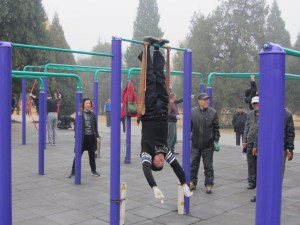Strange things have been happening this month, and I am not referring to the craziness in the world. I’m referring to me (#blogger #blog #somseason #YA #authors). Here is what I mean.
 Every year starting in November, my wife starts recording Hallmark Christmas movies, and she watches them endlessly. Every year I ask: “Why do you watch those stupid movies when they are all the same and they are so predictable?” Every year she responds with: “They’re light and make me feel good.” I typically get annoyed with her because she records so many movies that they interfere with the programs I want to record, usually from the History Channel.
Every year starting in November, my wife starts recording Hallmark Christmas movies, and she watches them endlessly. Every year I ask: “Why do you watch those stupid movies when they are all the same and they are so predictable?” Every year she responds with: “They’re light and make me feel good.” I typically get annoyed with her because she records so many movies that they interfere with the programs I want to record, usually from the History Channel.
Now if you are unacquainted with Hallmark Christmas movies, here is the basic premise of all Hallmark Christmas movies. They often involve a fast-paced, big city type who meets a small-town type who teaches him/her what Christmas or life is really about. The setting is always in a small town with an unusual name like Fertile. Everyone drinks hot chocolate or cider, and these towns have Christmas tree lighting ceremonies or some type of traditional event. These movies always have lesser known, attractive actors and actresses. Perhaps that is the real reason my wife watches these movies as she enjoys nice-looking male actors. Okay, I’ll be honest. I like watching good-looking female actresses too. Often, in Hallmark movies, someone is brought together with an old flame, and involves a going-to-buy-a-tree scene where the couple literally bump into each other and fall in love in a short time. These movies almost always involve some sort of Christmas magic.
Usually when I go to exercise on the treadmill or rower, I watch a movie. Now here is the weird thing. This year, in 2020, I’ve been watching Hallmark Christmas movies. I typically prefer to watch the typical guy movies; action packed Marvel super hero type movies, but not this year. This is a first for me. My wife likes it as I watch some of them with her. But the thing is, my wife is right; these movies do help a person capture the Christmas spirit.
Every year when it comes to decorating for Christmas, I complain. My wife and children call me the Grinch. In fact, for many of the Christmases past, my wife poured me an alcoholic drink so the decorating experience was tolerable for me. I’ll be honest, I hate decorating for Christmas, but this year was different. This year I volunteered to set up the tree and put the lights on it before having a hot tub. Anyone who knows me will tell you the hot tub is my “happy place,” so to decorate before hot tubbing is odd for me. I never complained once; I think my wife would confirm that.
Maybe subconsciously, I had a selfish motive. You see, I love coloured lights on the Christmas tree and my wife loves white lights, so we alternate years. This year is a coloured lights year, so maybe subconsciously I wanted to make sure the coloured lights were put on in case my wife put on the white lights and then claimed she forgot it was a coloured light year. But I don’t think that is it.
I believe the strangeness I am experiencing is answered in the song ‘The World Needs Christmas’ by Emily And Mike. The song says:
It’s been a long and trying year
Full of anxiety and fear
But now it’s finally December
It’s the time when we remember
The world needs Christmas
More than ever this year
Put all the distant, the conflict, the stress, and the trauma behind usThe world needs Christmas
We need laughter and cheer…
If you never listened to the song, here it is
I think I can explain my atypical behaviour. This year, more than any other year, my heart craves love, hope, peace and joy. I need to feel the spirit of Christmas. Some unknown said:
“Until one feels the spirit of Christmas, there is no Christmas. All else is outward display–so much tinsel and decorations. For it isn’t the holly, it isn’t the snow. It isn’t the tree not the firelight’s glow. It’s the warmth that comes to the hearts of men [and women] when the Christmas spirit returns again.”
 American essayist and lecturer, Hamilton Wright Mabie once said: “Blessed is the season which engages the whole world in a conspiracy of love!” American novelist, Edna Ferber, says: “Christmas isn’t a season. It’s a feeling.” Or “Love is what’s in the room with you at Christmas if you stop opening presents and listen,” an unknown author wrote. Yes, I am longing for that Christmas feeling or spirit. Right now, our world needs peace after a trying 2020, the year of bullying (#bullying #antibullying). As American writer of religious and inspirational poetry, Helen Steiner Rice says: “Peace on earth will come to stay, when we live Christmas every day.”
American essayist and lecturer, Hamilton Wright Mabie once said: “Blessed is the season which engages the whole world in a conspiracy of love!” American novelist, Edna Ferber, says: “Christmas isn’t a season. It’s a feeling.” Or “Love is what’s in the room with you at Christmas if you stop opening presents and listen,” an unknown author wrote. Yes, I am longing for that Christmas feeling or spirit. Right now, our world needs peace after a trying 2020, the year of bullying (#bullying #antibullying). As American writer of religious and inspirational poetry, Helen Steiner Rice says: “Peace on earth will come to stay, when we live Christmas every day.”
Christmas—I speak of Christmas only because I was raised Christian—has always meant something more to me than the commercial aspect of gift giving. It’s a feeling, and I remember well that feeling as a kid. I remember feeling love when we gathered with aunts, uncles, cousins, and friends. Perhaps American children’s author Theodor Seuss “Ted” Geisel, better known as Dr. Seuss, says it best with:
And the Grinch, with his Grinch-feet ice cold in the snow, stood puzzling and puzzling, how could it be so? It came without ribbons. It came without tags. It came without packages, boxes or bags. And he puzzled and puzzled ’till his puzzler was sore. Then the Grinch thought of something he hadn’t before. What if Christmas, he thought, doesn’t come from a store. What if Christmas, perhaps, means a little bit more.
One of my favourite movies is the 1951 version of Charles Dickens’ story, A Christmas Carol. I grew up watching this movie every Christmas, usually with my dad, when it was on television Christmas eve. It’s the story of Ebenezer Scrooge, a miserly businessman who largely views Christmas as a waste of time. But that all changes on Christmas Eve when he is visited by the spirits, or ghosts, of Christmas past, present and future who show him the errors of his ways. My favourite part of the movie is when Scrooge, played by Edinburgh born actor, the late Alastair Sim, wakes up Christmas morning. Here is what I am talking about. Be sure to watch the entire clip.
Mr. Scrooge definitely caught the Christmas spirit. He is filled with hope, love, and joy. What Mr. Scrooge felt is what I need to feel more than anything this year. I suspect that is true for everyone on this planet.
Christmas time is an important month for other world religions, since Islam, Judaism and Buddhism all celebrate major festivals around Christmas. The Jewish festival of lights, Chanukah, is one such festival. The Muslim festival, Ashura, is celebrated by both Sunni and Shia Islam. The Buddhist celebration of Bodhi Day, celebrated December 8th, is a celebration when Buddha is said to have gained enlightenment while sitting under a tree. These festivals are all celebrated around the Christian Christmas festival.
The word ‘festival’ stems from the root word ‘fest’ which is a gathering, event, or show having a specified focus. A festival is about relationship as it can mean a day or period of time set aside for feasting and celebration. Whenever there is feasting and celebration, there is peace, joy. hope, and love. It is time to bring on the festivals, in whatever form you envision this month, and capture the feeling of Christmas, or Chanukah, or Ashura, or Bodhi day, or whatever festival you celebrate. Author Max Abraham says, “Without relationships, life is useless, empty, boring and lonely.” The world needs that feeling, especially this year.





















